Breathing, Digestion and Swallowing: Best Practices in Dysphagia Management – Angela Mansolillo
Assessing the Interrelationships Between the Respiratory and Gastroesophageal Systems
The American Speech-Language-Hearing Association estimates that more than 15 million people in the United States have dysphagia. With dysphagia being that common, the need for an effective treatment plan is considerable. Furthermore, dysphagia is often correlated with many other medical conditions, including gastrointestinal conditions, nervous system disorders and respiratory disorders. These medical conditions can exacerbate the patient’s dysphagia and complicate the assessment process. Clinicians who fail to recognize the interrelationships between the respiratory and gastroesophageal systems may be under-treating the patient’s condition.
This recording will help give clinicians a clearer picture of the respiratory and gastrointestinal systems, their relationship to each other, and their impact on dysphagia management. Disease processes, with particular emphasis on aspiration pneumonia and gastroesophageal reflux disease, will be discussed along with strategies for clinical management. Finish with the skills to thoroughly assess and treat the whole patient, not just their symptoms.
- Discuss the development and interrelationships between the respiratory and gastroesophageal systems
- Describe the impact of respiratory and gastrointestinal functioning on swallowing
- Identify respiratory and gastroesophageal disease processes for which dysphagia is a symptom
- Describe the evidence to support various diagnostic tools such as reflex cough testing, pulse oximetry, and clinical and instrumental swallowing assessment
- Identify common indicators of reflux and how they impact the treatment process
- Discuss which patients are most at risk for developing aspiration pneumonia
RESPIRATORY SYSTEMS
- Overview of systems – anatomy/physiology
- Breathing/Swallowing coordination
- The apneic signal
- The relationship of coordination to aspiration
- Laryngeal Chemical Responses (LCRs)
- Reflexive cough
GASTROESOPHAGEAL SYSTEMS
- esophageal function
- Barriers to reflux
- Saliva swallows
- Digestive acids
- Reflux mechanisms
- Relationship to feeding disorders
- GERD signs and symptoms u
- When does GER become GERD?
- Reflux, feeding and swallowing behaviors
- Relationship to dysphagia
GI/RESPIRATORY RELATIONSHIPS
- Pressure relationships and their effect u
- Asthma/gastroesophageal reflux connection
- Laryngopharyngeal Reflux (LPR)
ASPIRATION
- Pulmonary Clearance Mechanisms
- Aspiration in infancy
- How much is too much?
- Predictors of pneumonia in various populations
- Aspiration and oral hygiene
RESPIRATORY DISEASE PROCESSES
- Infant Respiratory Distress Syndrome (IRDS)
- Bronchopulmonary Dysplasia (BPD)
- Respiratory Synctial Virus (RSV)
- Congenital Heart defects
- Obstructive Sleep Apnea (OSA) and dysphagia
- Congestive Heart Failure (CHF)
- Obstructive Conditions
- Restrictive Conditions
- Pneumonia vs Pneumonitis
- Community Acquired Pneumonia
- Healthcare Acquired Pneumonia
- Aspiration Pneumonia
AIRWAY MANAGEMENT
- Non-invasive positive pressure ventilation
- High flow nasal cannula
- Intubation
- Post-extubation dysphagia
- Tracheostomies
- Physiological changes associated with tracheotomy
ASPIRATION ASSESSMENT
- Clinical assessment – what are we looking for?
- Cognitive assessment
- Pitch elevation
- Serial swallows
- Oral mechanism
- Respiratory factors
- Cough
- Respiratory muscle strength
- Instrumental assessment
- Modified Barium Swallow studies
- Fiberoptic Endoscopic Evaluation of Swallowing
- 3 ounce water tests
- Understanding lab values
ASPIRATION MANAGEMENT
- Diet modifications
- Implications of dietary changes
- Compliance issues
- Thick liquids
- Complicating factors associated with thickening
- Water protocols
- Compensatory strategies
- Sensory interventions
- Principles of exercise physiology
- Lingual strengthening
- Effortful swallow
- Mendolsohn maneuver
- Masako maneuver
- Shaker head lift
- Chin tuck against resistance
- Head extension exercise
- Jaw opening exercise
- Tongue pull back
- Effortful pitch glide
- Expiratory muscle strength training
REFLUX ASSESSMENT
- Upper GI studies
- Ph Monitoring
- Esophagoscopy
- Scintigraphy
REFLUX MANAGEMENT
- Lifestyle modifications
- Positioning
- Diet modifications
- Medications
- Effects of acid suppression
- Surgical interventions
- New directions in reflux management
- Endoscopic procedures
- Melatonin
- Acupuncture
- Magnetic Sphincter Augmentation
Get Download Breathing, Digestion and Swallowing: Best Practices in Dysphagia Management – Angela Mansolillo at Offimc.click Now!
Delivery Information
- Upon ordering the product, a delivery email with download instructions will be sent immediately to you so that you may download your files. If you log in (or create an account) prior to purchase you will also be able to access your downloads from your account dashboard.
- It is a digital download, so please download the order items and save them to your hard drive. In case the link is broken for any reason, please contact us and we will resend the new download link to you.
- If you don't receive the download link, please don’t worry about that. We will update and notify you as soon as possible from 8:00 AM – 8:00 PM (UTC+8).
- Please Contact Us if there are any further questions or concerns you may have. We are always happy to assist!



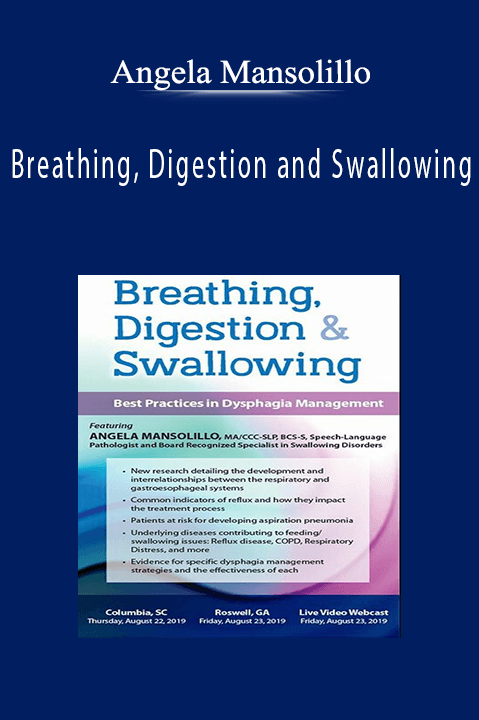



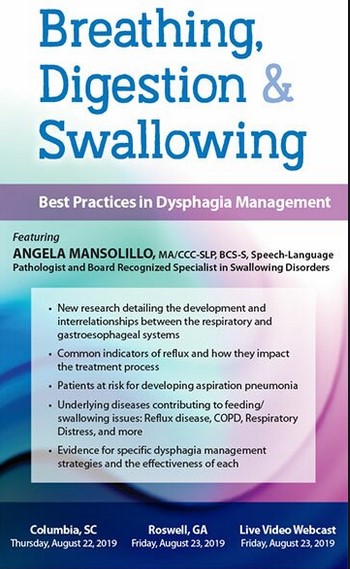

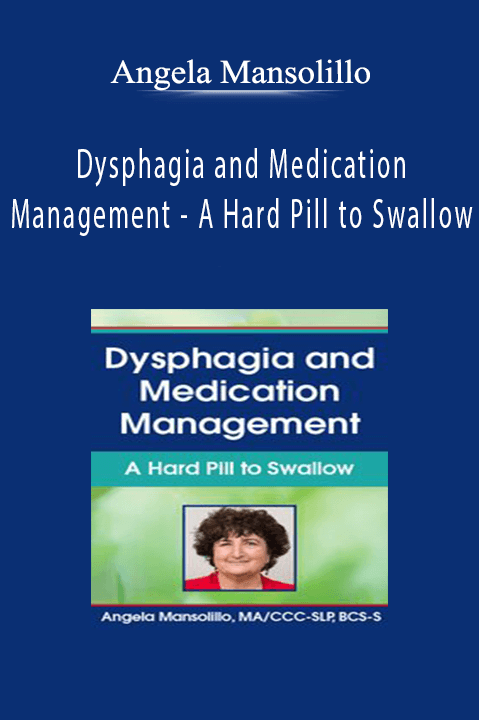
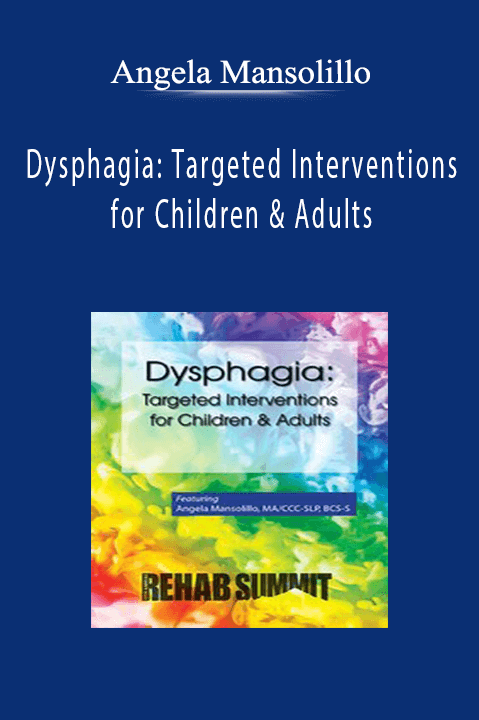
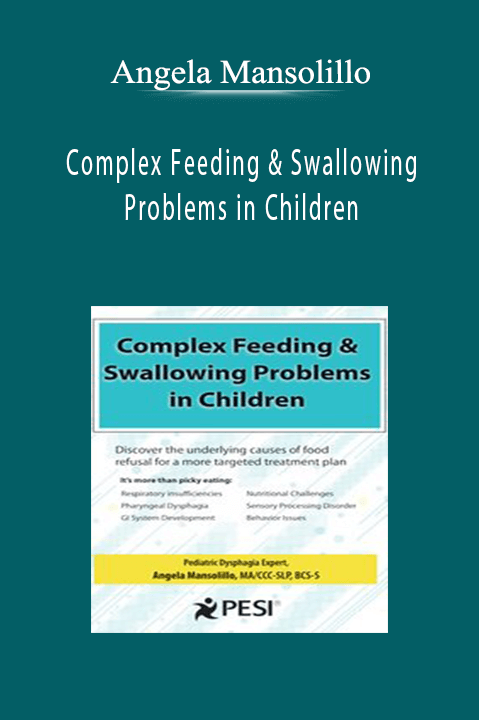

7 reviews for Angela Mansolillo – Breathing, Digestion and Swallowing: Best Practices in Dysphagia Management
There are no reviews yet.